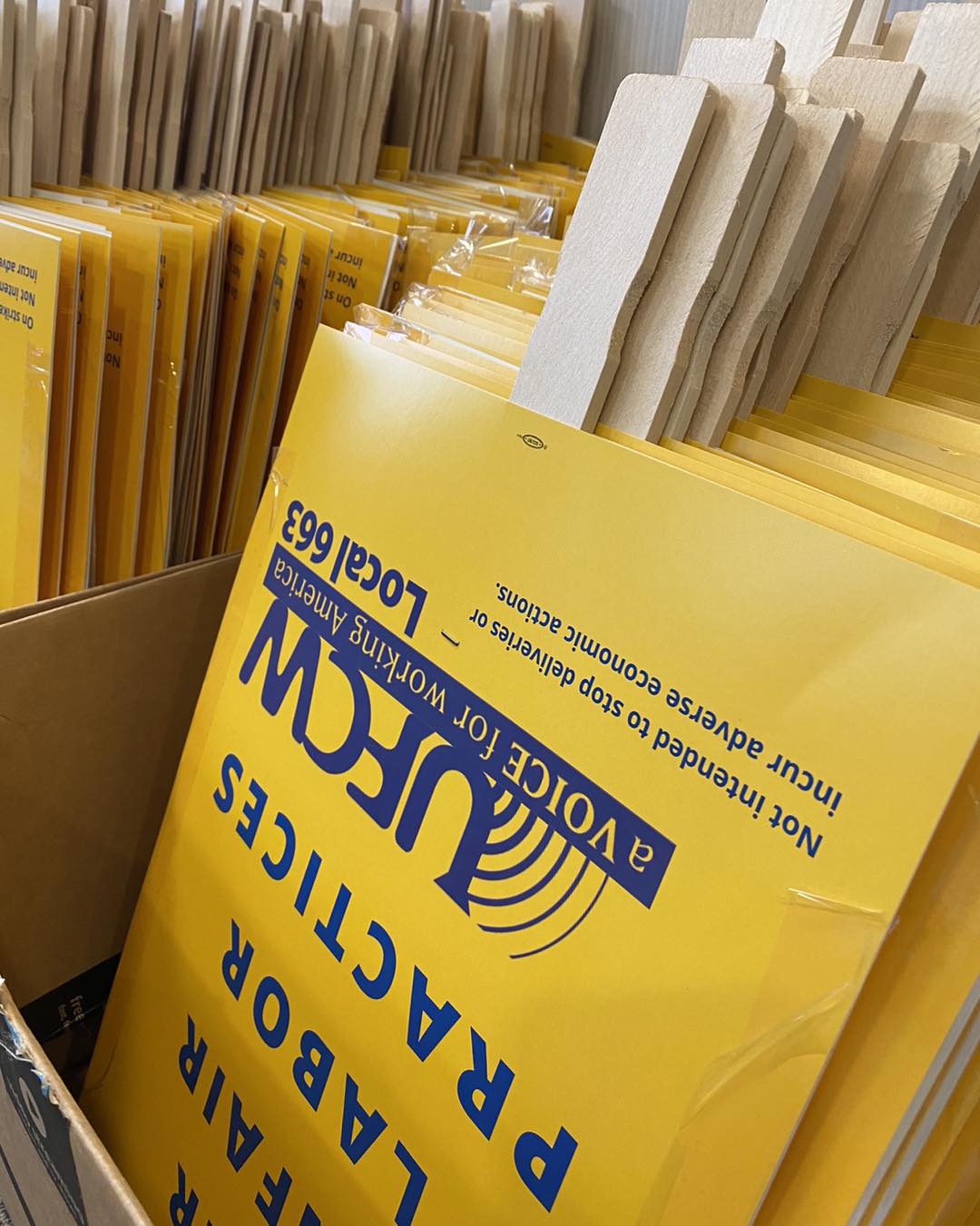The planned strike by United Food and Commercial Workers (UFCW) Local 663 this past Friday and Saturday has been called off following a tentative agreement reached by the bargaining committee that would provide workers with wage increases of $2.50 to $3.50 an hour by Spring of 2024 and establish a safety committee. A membership ratification vote is currently being organized for April 11.
33 Cub Foods stores had planned to go on strike to protest unfair labor practices (called a “ULP strike“) by the parent company. These stores — unlike some other Cub stores around the metro — are owned by United Natural Foods (UNFI), the largest publicly traded wholesale distributor of health and specialty food in the US and Canada. Socialists will be interested to know that UNFI is also Amazon’s Whole Foods Market’s largest supplier: business with Whole Foods made up over one-third of UNFI’s revenue in 2018. This year, the company’s profits plummeted, and workers — who are expected to bear the burden through austerity measures around pay and benefits — stood up to demand that the company “Respect Us. Protect Us. Pay Us.“
This is the first contract UFCW 663 has negotiated with UNFI since the company bought SuperValu in 2017 and the first opportunity for workers to improve wages and benefits in five years. UNFI has a history of being unfriendly to workers, and there was a successful picket at their warehouse in Hopkins by Teamsters in 2019. During negotiations with 663, UNFI has been accused of unfair labor practices and has refused to offer living wages. Since the strike announcement, UNFI sent messages to their union workers directing them to the union-busting National Right to Work Foundation.
The strike this weekend was averted, but as we’ve seen over the last year, there will be more opportunities to show up in support of workers. One of the most fundamental labor actions is the picket line, and every socialist should know what to do. This is also published here, and is great to share with comrades!
Some Picket Line Do’s and Don’ts
DO’s
- Ask how you can support the picket. Most picket lines will have some kind of sign-in table where there is water, picket signs, etc. Ask one of the strike leaders what you can do to help, whether it’s passing out water, joining the picket line, going to a weaker picket line on the other side of the building, etc. Follow the workers’ vibes!
- Ask Questions and Listen:
- Why are these workers on strike? What are their major demands? What things have they experienced in their workplace that have led them to go on strike?
- Respect the leadership of the rank-and-file. Rank and file activism comes from the workers first and foremost. It may be intimidating for many workers to publicly demonstrate against their employer; their choices and judgment of how to proceed or conclude in a strike situation should be respected.
- Be positive! Especially if the workers announce any kind of win or gain, join in with positive energy and celebrations on the picket line. Picketing is hard work, and part of your role is to help lift everyone’s spirits.
Our role on the picket line is not to be critics of a strike or its tactics, but to support what’s in front of us.
AVOID
- Taking a leadership role. This action was initiated by and should be carried out by the workers themselves. If you are invited to make a speech or lead chants, take the opportunity. If not, avoid taking a megaphone, creating or relocating picket lines, or implementing a tactic not taken by strike leaders unless asked to do so.
- Using tactics not authorized by the leaders of the strike. This comes with respecting the leadership of the rank-and-file and not taking on an aggressive leadership role. Workers have discussed and decided on their tactics; our role is to support, not question them during their action.
- Promoting a DSA campaign, unless asked. Our role is to be present in solidarity with the rank and file and supportive of the strike or action, not to evangelize DSA. If a striking worker starts talking to you about M4A or Bernie Sanders, you should feel empowered to discuss that, but DSA’s work is not the main focus.
- Union workers may have had previous negative experiences with socialists aggressively handing out newspapers, and we want to avoid reproducing that!
- Clustering with other DSA members. While we want to avoid being aggressive, we also don’t want to isolate ourselves. Instead of just standing with your DSA comrades, circulate throughout the strike, ask workers questions about the issues, and find out how you can help.

